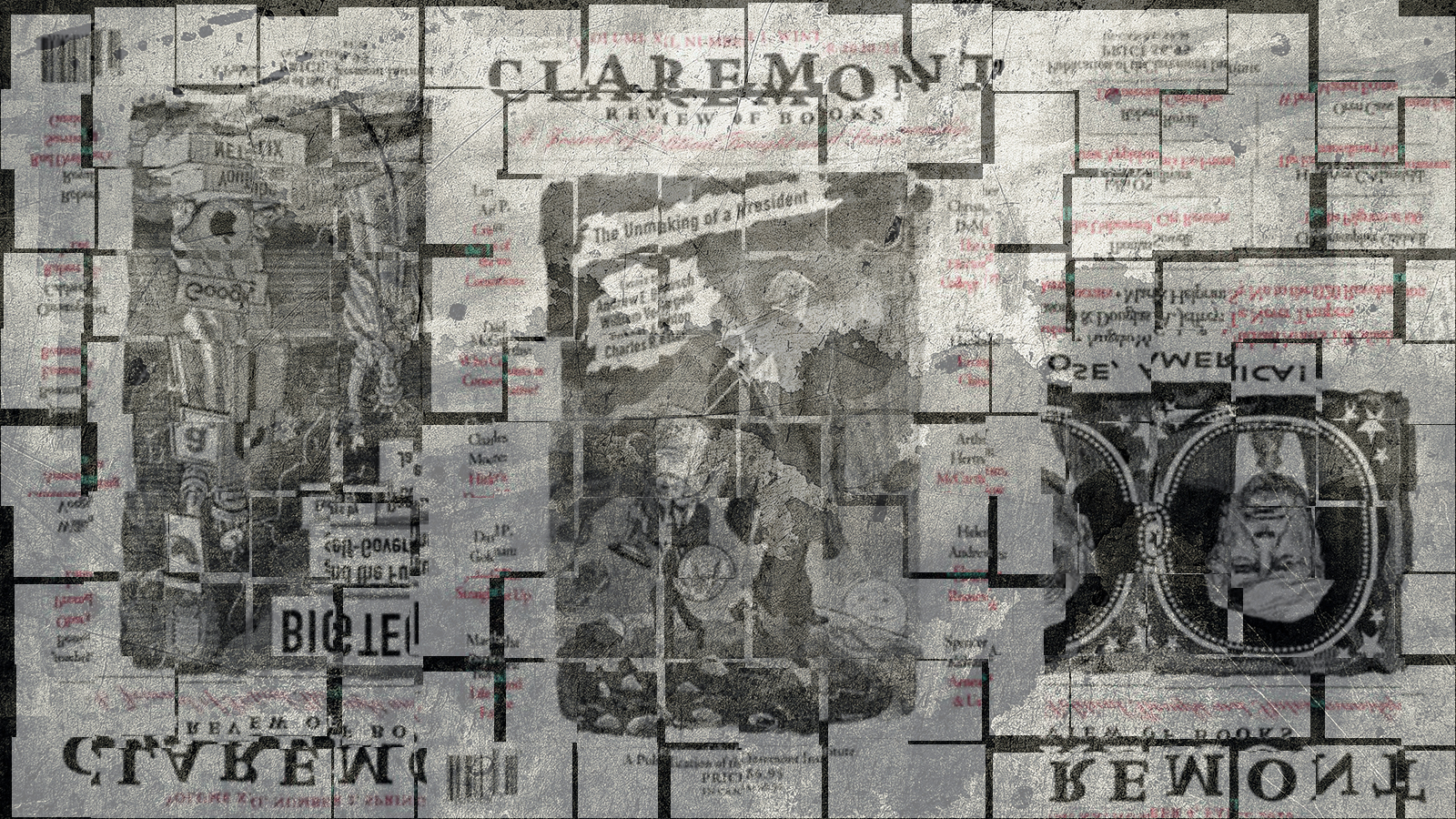What the Claremont Institute failed to learn from Leo Strauss


A free daily email with the biggest news stories of the day – and the best features from TheWeek.com
You are now subscribed
Your newsletter sign-up was successful
This week's must-read essay comes from author Laura Field at The Bulwark. "What the Hell Happened to the Claremont Institute?" is a tour de force of critical intellectual journalism, carefully laying out the history of the influential conservative institute and how it has been transformed by its encounter with Donald Trump to become a leading force for the radicalization of the American right. (Full disclosure: I regularly appear on "Beg to Differ," The Bulwark's weekly podcast on current affairs.)
Though Field mentions controversial political philosopher Leo Strauss early on in the essay, he is passed over quickly, described as an important early influence on Harry Jaffa, the leading figure behind the institute and its distinctive approach to understanding American politics and history. This lack of attention to Strauss is justified. Jaffa's single-minded focus on the United States and overriding emphasis on producing hagiographical treatments of Great Statesmen (the American constitutional framers, Abraham Lincoln, and Winston Churchill, above all) place him quite far from Strauss' more philosophical focus and concerns.
Yet there is one respect in which the Strauss connection is highly ironic and worth pondering. Strauss was himself a conservative revolutionary in his youth, supporting the antiliberal right during the era of Germany's Weimar Republic. When the most extreme of the right-wing parties — Adolf Hitler's virulently anti-Semitic National Socialists — rose to power, Strauss (a Jew) fled the country, first to France, then to England, and finally to the United States, where he taught during the 1940s at the New School for Social Research (where Jaffa encountered him) and then, during the 1950s and '60s, at the University of Chicago.
The Week
Escape your echo chamber. Get the facts behind the news, plus analysis from multiple perspectives.

Sign up for The Week's Free Newsletters
From our morning news briefing to a weekly Good News Newsletter, get the best of The Week delivered directly to your inbox.
From our morning news briefing to a weekly Good News Newsletter, get the best of The Week delivered directly to your inbox.
Along the way, Strauss' political views moderated. In fact, his mature position (the one that inspired so many of his American students to become "Straussians") pointed away from political radicalism. On the practical level, liberal democracies like the United States protected freedom of thought and kept alive a commonsense moral idealism that was fertile ground for philosophical reflection on human nature. That made liberal governments worth defending against antiliberal alternatives. And then there was the delusion to which Strauss himself had succumbed as a young man: He had sought a degree of spiritual fulfillment in politics that could only be achieved through either religious piety or philosophical contemplation of truths that lie beyond political attachments.
That is a lesson that Strauss' devotees at the Claremont Institute, who delight in pouring rhetorical gasoline on the country's many smoldering civic conflicts, have actively unlearned. Unless they failed to grasp the point in the first place. Either way, they've ended up where Strauss's quest for wisdom began, knee-deep in the pestilential swamps of the radical right, as Laura Field's masterful essay amply documents.
A free daily email with the biggest news stories of the day – and the best features from TheWeek.com
Damon Linker is a senior correspondent at TheWeek.com. He is also a former contributing editor at The New Republic and the author of The Theocons and The Religious Test.
-
 The environmental cost of GLP-1s
The environmental cost of GLP-1sThe explainer Producing the drugs is a dirty process
-
 Greenland’s capital becomes ground zero for the country’s diplomatic straits
Greenland’s capital becomes ground zero for the country’s diplomatic straitsIN THE SPOTLIGHT A flurry of new consular activity in Nuuk shows how important Greenland has become to Europeans’ anxiety about American imperialism
-
 ‘This is something that happens all too often’
‘This is something that happens all too often’Instant Opinion Opinion, comment and editorials of the day
-
 Greenland’s capital becomes ground zero for the country’s diplomatic straits
Greenland’s capital becomes ground zero for the country’s diplomatic straitsIN THE SPOTLIGHT A flurry of new consular activity in Nuuk shows how important Greenland has become to Europeans’ anxiety about American imperialism
-
 Epstein files topple law CEO, roil UK government
Epstein files topple law CEO, roil UK governmentSpeed Read Peter Mandelson, Britain’s former ambassador to the US, is caught up in the scandal
-
 Iran and US prepare to meet after skirmishes
Iran and US prepare to meet after skirmishesSpeed Read The incident comes amid heightened tensions in the Middle East
-
 Which way will Trump go on Iran?
Which way will Trump go on Iran?Today’s Big Question Diplomatic talks set to be held in Turkey on Friday, but failure to reach an agreement could have ‘terrible’ global ramifications
-
 Israel retrieves final hostage’s body from Gaza
Israel retrieves final hostage’s body from GazaSpeed Read The 24-year-old police officer was killed during the initial Hamas attack
-
 China’s Xi targets top general in growing purge
China’s Xi targets top general in growing purgeSpeed Read Zhang Youxia is being investigated over ‘grave violations’ of the law
-
 Ukraine, US and Russia: do rare trilateral talks mean peace is possible?
Ukraine, US and Russia: do rare trilateral talks mean peace is possible?Rush to meet signals potential agreement but scepticism of Russian motives remain
-
 Panama and Canada are negotiating over a crucial copper mine
Panama and Canada are negotiating over a crucial copper mineIn the Spotlight Panama is set to make a final decision on the mine this summer
